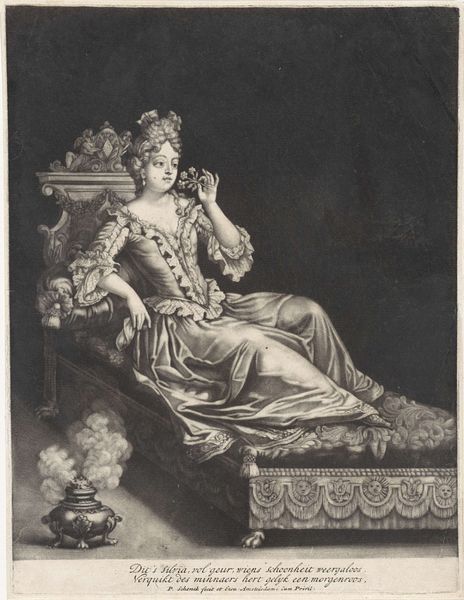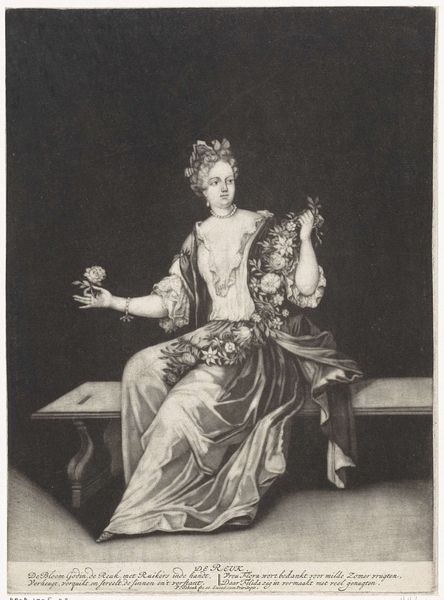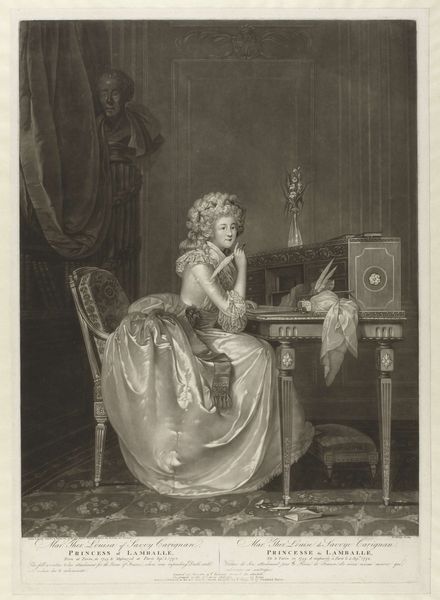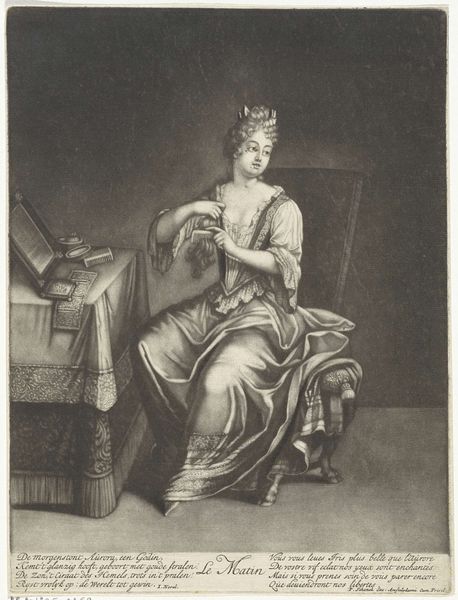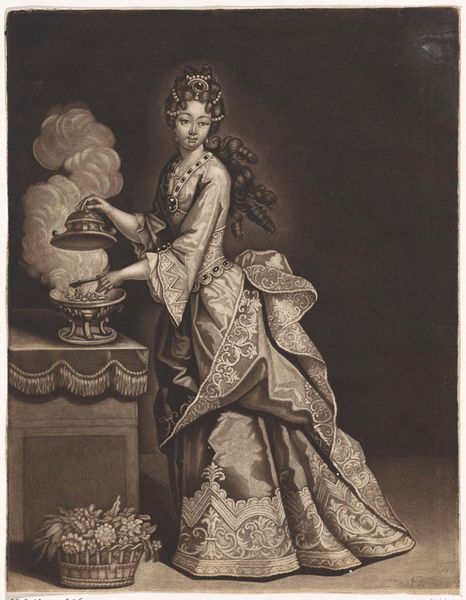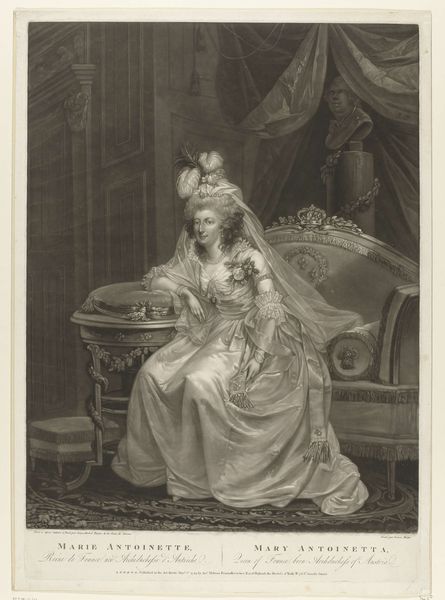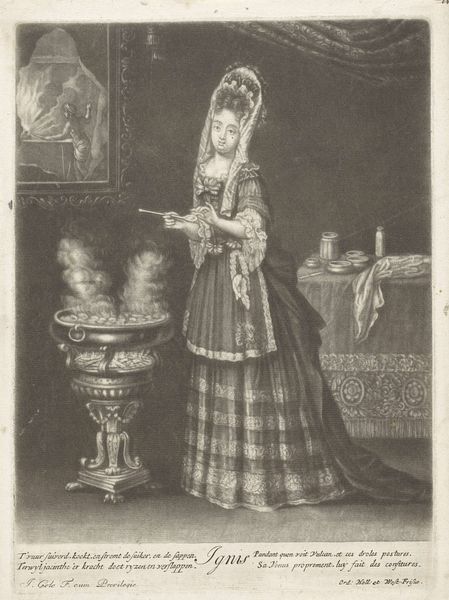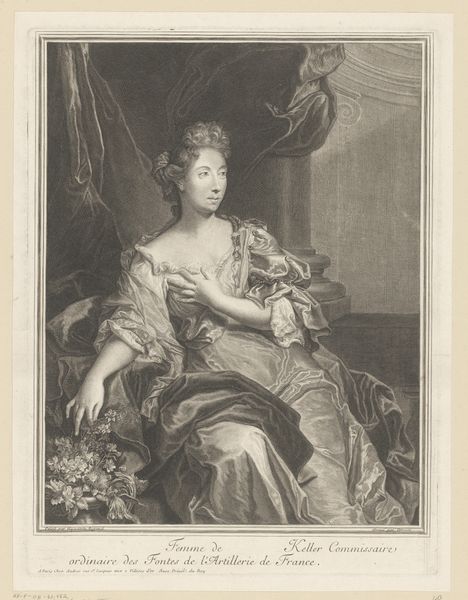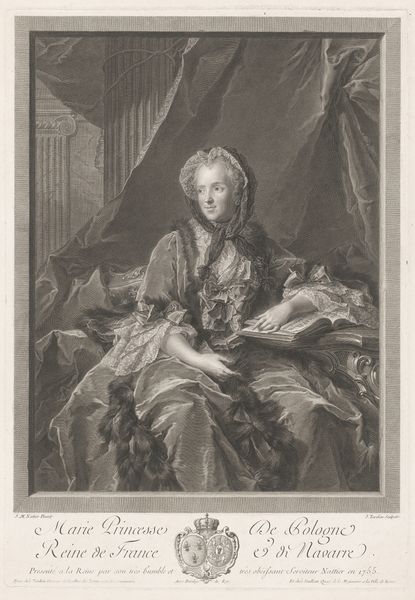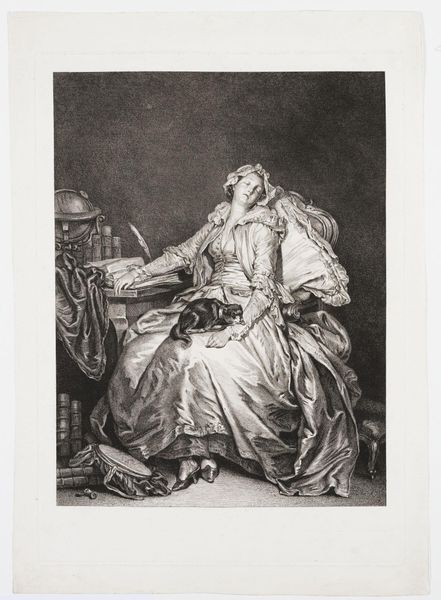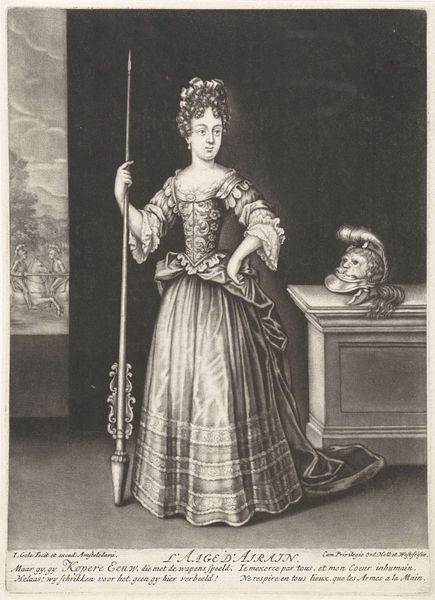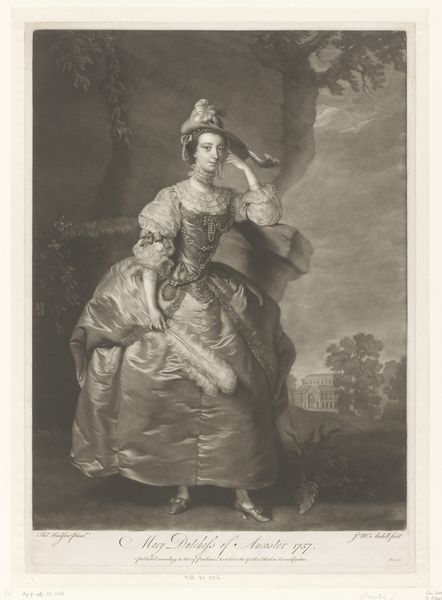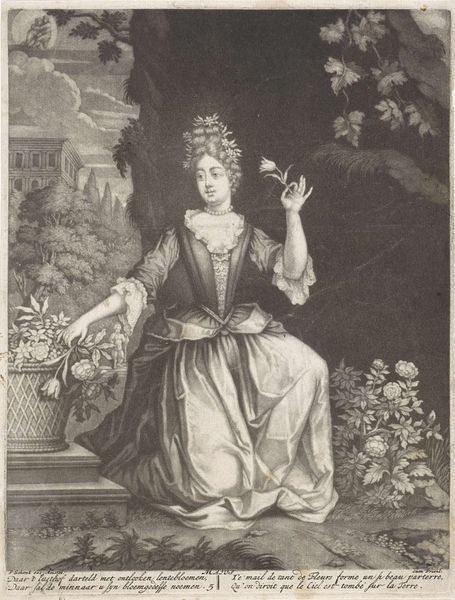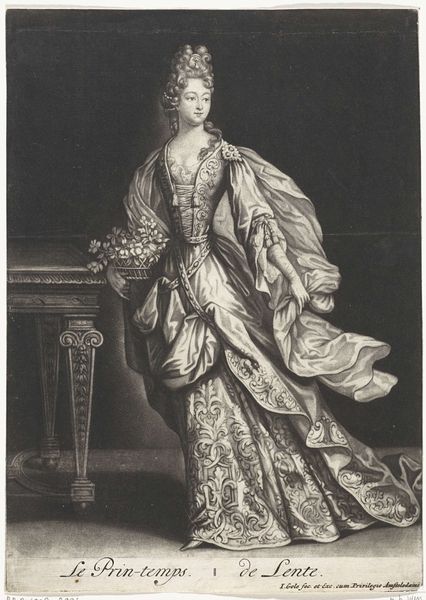
print, engraving
#
portrait
#
allegory
#
baroque
# print
#
old engraving style
#
figuration
#
old-timey
#
19th century
#
genre-painting
#
history-painting
#
academic-art
#
engraving
Dimensions: height 252 mm, width 182 mm
Copyright: Rijks Museum: Open Domain
Jacob Gole's "Aritmetica," created around the late 17th to early 18th century, presents a monochromatic world where textures and light define the subject. A seated woman, embodying arithmetic, is centrally placed, holding a framed numerical table, all set against the backdrop of heavy drapery. The composition is meticulously arranged, each element contributing to the symbolic representation of arithmetic's significance. The artist uses the interplay of light and shadow to sculpt form, adding depth to the textures of fabric and skin. This creates a visual tension that invites closer inspection. Considering semiotics, the number table becomes a signifier of calculation and order, central to understanding the arts and sciences, as suggested by the inscriptions. Here, arithmetic is not merely a skill but a foundational element of human knowledge. The woman's elegant posture and attire indicate the cultural values associated with learning and intellectual pursuits during the period. The use of monochrome etching emphasizes line and form, challenging the viewer to look beyond color and engage with the underlying structure of representation.
Comments
No comments
Be the first to comment and join the conversation on the ultimate creative platform.
